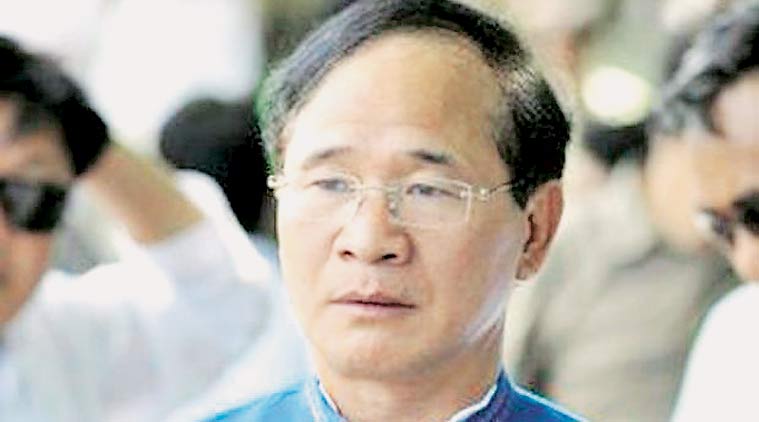Arunachal: Making of the crisis
The ruling Congress Legislature Party on the other hand continues to remain split, with 21 of its 47 members sticking to their guns for removal of Nabam Tuki from the chief minister’s post.
 Nabam Tuki
Nabam Tuki
The political crisis in Arunachal Pradesh has in the last few weeks has definitely led the frontier state to a serious Constitutional crisis, especially after Speaker Nabam Rebia failed to get the state assembly convened within six months of it being held earlier. According to rules, the House should have been in session by January 14.
READ | Congress says Modi govt ‘trampling’ on democracy, to move court
The ruling Congress Legislature Party on the other hand continues to remain split, with 21 of its 47 members sticking to their guns for removal of Nabam Tuki from the chief minister’s post. With the deputy speaker also on their side, the dissident camp’s strength in fact stands at 22. Backed by 11 BJP and two Independent legislators, Tuki stands to lose in the event of a floor test, as reportedly suggested by the Supreme Court last week.
READ | Union Cabinet recommends President’s Rule in Arunachal Pradesh
Dissidence in the CLP had precipitated following a situation where governor JP Rajkhowa had stepped in after the government’s functioning had come to a grinding halt with the dissidents’ camp gaining strength over the months. Chief Minister Tuki dropped a number of ministers since April 2015. First he dropped finance minister Kalokho Pul, then two MLAs were allegedly forced to resign. In August four more ministers were dismissed, while one senior minister quit in October – all only adding strength to dissidence in the ruling party.
Meanwhile Governor Rajkhowa – who, according to the Congress, had converted Raj Bhavan to a BJP office – stepped in to reschedule the state assembly session from January 4 to December 16, asking the deputy speaker TN Thongdok to take up a motion seeking removal of Nabam Rebia from the Speaker’s post. This order was immediately followed by Speaker Rebia dismissing 14 MLAs from the rebel camp.
While Speaker Rebia, backed by chief minister Tuki, strongly resisted the House session being held in the Assembly complex, the dissidents were joined by 11 BJP members and two independents to hold the session in a make-shift assembly on December 16 and 17, during which they also “elected” former finance minister Kalikho Pul as Leader of the House, in addition to passing the impeachment motion against Rebia.
This series of developments took both sides to court, and though Speaker Nabam Rebia on December 18 got major relief when the Gauhati High Court ordered the governor’s order to be kept in abeyance till February 1, 2016, a subsequent order by another judge issued an interim order restricting Speaker Rebia from holding any session till January 4.
The whole bunch of petitions and counter-petitions have led the two sides to the Supreme Court, which in turn has referred the matter to the Constitution Bench which is currently deliberating upon the controversy over who had more power and jurisdiction – Speaker or Governor.
Interestingly, even as the apex court is hearing the matter, a suggestion to have a House session to conduct a floor test of the chief minister with a pro-tem Speaker was reportedly resisted by Speaker Rebia, who, going the Governor’s interpretation, has been already removed. The Speaker’s plea was the issue of disqualification of 14 Congress legislators that he had ordered on December 16 was yet to be resolved by the court.
- 01
- 02
- 03
- 04
- 05






































